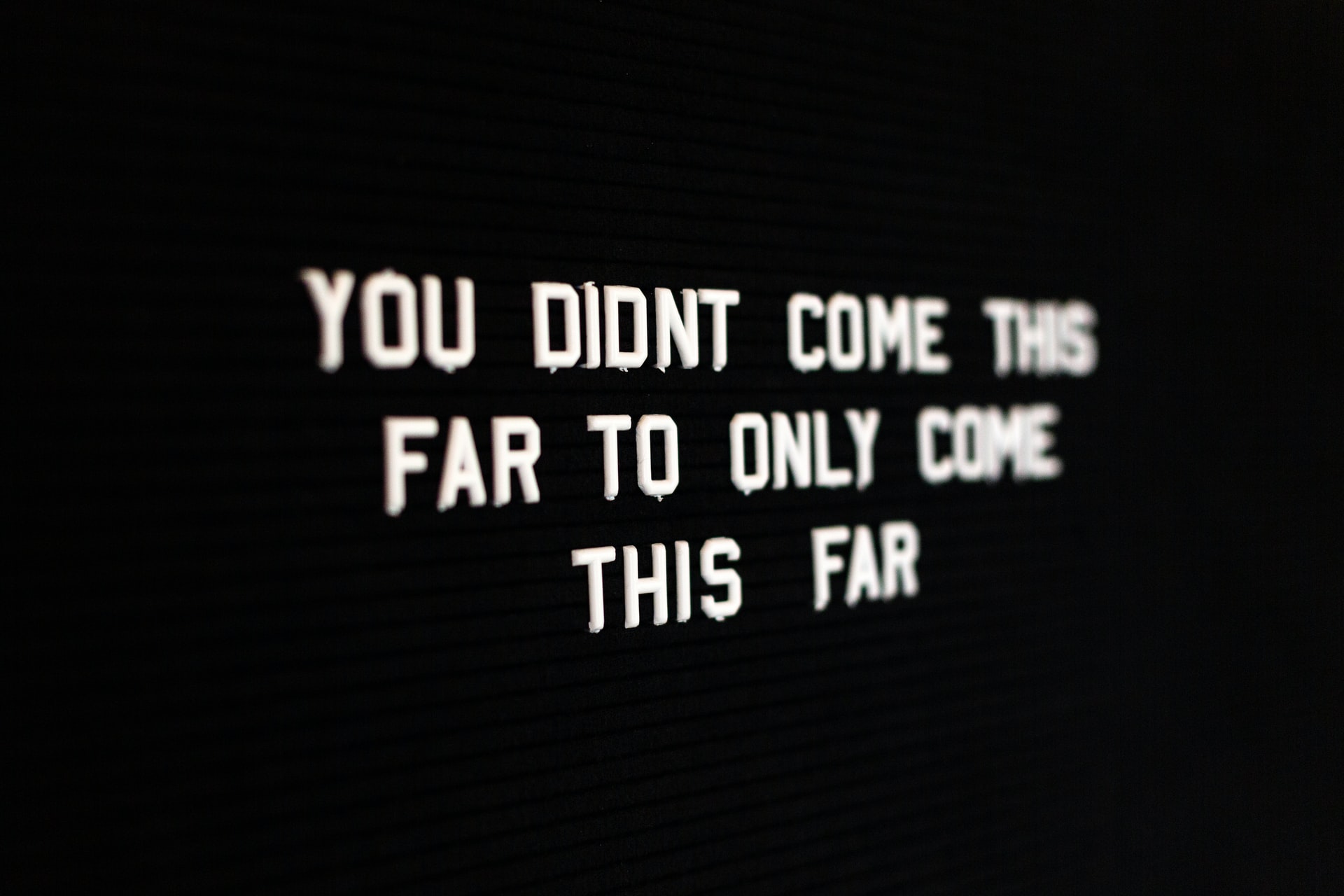Accountability is a word I find most people run away from. Accountability, for many, is a word associated with shaming, belittling, and punishing. However, accountability to me is about taking responsibility. And taking responsibility is about empowerment. There are reasons we make the choices we do and some of those reasons aren’t necessarily our fault so when we make a choice that has negative impacts on us, it’s easy to place blame on someone or something else. Blame, though, gives whatever we are blaming power over us. It makes us dependent and when we are completely dependent, we lose control. Taking accountability is about finding your responsibility. Looking at the choices made and the situations you are in and identifying what role you have, what you are in control of, and establishing a plan to move forward.
It’s important to take time to develop an accountability system so that you can maintain a healthy nutrition relationship. Without an accountability system, you may find that you fall back to unhealthy systems of accountability (such as shaming yourself or punishing yourself with super strict rules) or not keeping yourself accountable at all. The lack of effective accountability will lead to lack of results and progress. An effective accountability plan has four main components:
- Clear Expectations
- Communication
- Coaching
- Consequences
Clear Expectations
This goes back to knowing what you want and setting boundaries. What do you expect from yourself? What do you expect from others? Ensuring that your expectations are specific and concise is vital to guaranteeing “future you” doesn’t consider a moment a success/failure when “current you” wouldn’t agree. One way to do this is by creating S.M.A.R.T. goals. S.M.A.R.T. is an acronym standing for Specific, Measurable, Attainable, Relevant, and Timely.
- Specific: Answers the “What?” Avoid words that are broad and general. For example, if your goal is “I want to eat healthier.” The word “healthier” is too general. You would need to specify what you mean by that. This may change the goal to “I want to lose body fat.”
- Measurable: Answers the “How many/much?” When will you know you have succeeded? If your goal doesn’t have an end point or is an on-going goal, then you will want to re-evaluate and create a goal that has a definite end/success point. For example, if your goal is “I want to lose body fat.” You will make it measurable by identifying the metrics you will use to track. The goal would then be worded as “I want to lose five inches off my waist.”
- Attainable: Is this goal realistic? To determine if a goal is realistic, you should ask yourself if you have the resources necessary to commit and if it is possible to achieve.
- Relevant: Answers the “Why?” Take some time to really understand why this goal is important to you. For example, this may make the goal “I want to lose five inches off my waist because my hip to waist ratio shows that I have increased risk of disease and I want to lower my risk.”
- Timely: Answers the “When?” This ties in with “Attainable”. It’s important to create a time frame that is realistic; one that creates a sense of urgency to motivate you, but not so much urgency that you set yourself up for failure.
Creating S.M.A.R.T. goals for both long term (more than 6 months) and short term (monthly & weekly) will help you stay consistent and see results. Once your goals are creating, you may identify S.M.A.R.T. tasks/actions that need to be taken in order to accomplish those goals; these tasks will be your expectations. Creating time frames for these tasks will let you know when you will need check in on yourself to evaluate your progress.
Communication
The key to any relationship is communication. When it comes to your nutrition relationship, the communication you have with yourself and with others is crucial.
- There are two things I want you to focus on when it comes to communication with yourself:
- Self-Talk is how you talk to yourself (whether out loud or quietly in your own head). There is positive self-talk, such as saying to yourself “You got this. Keep pushing.” And there is negative self-talk, such as saying to yourself “You are a horrible person. Nobody would ever like the real you.” While I’m not going to tell you that all your self-talk should be ultra positive, I do know it is essential that the way you talk to yourself in both the positive and negative moments have great impacts on your consistency. I will go into more detail about self-talk in another blog, but if this is your first time hearing this term, do a little research on “self talk” and how it can impact behavior, perceptions, and feelings.
- Written Reminders: Another form of communication that is essential in your accountability system is writings. Writing down your goals and expectations and not relying solely on memory. Having a calendar and setting a date/time for your next self-check in or check in with your accountability partner.
- When communicating with others, you should share your expectations. If you can’t eat at a certain restaurant because it would cause you to fall off your nutrition plan, say that. If you need help with building skills, communicate that. Just in general, remember, nobody can read your mind (…as far as I know lol) so communication is important.
Coaching
Having a nutrition coach can significantly help with keeping you accountable while building/strengthening your skill sets. I actually know a great nutrition coach *clears throat* Yes, this is a shameless plug to encourage you to sign up for nutritional coaching, which you can do so by clicking HERE. But aside from hiring a professional, coaching could also be about recruiting people in your life to call you on your shit. This person or community of people would need to be committed and assertive. It can help if they are equal to or more knowledgeable on nutrition than you and that they feel comfortable communicating with you. Having someone outside of yourself to hold you accountable can really increase your odds of progressing towards your goals.
Consequences
It’s another word you probably don’t like, but as you know, all our choices have consequences….both positive and negative. And the good thing is that you get to make your own. Take some time to develop a gradual reward system and a gradual intervention system to address both actions and results. Actions are what you do. Results are what happen based on your actions. It’s important to differentiate between action and results as they may require attention differently. You could reward actions (completing all your workouts for the week) while providing intervention for results (not losing the designated weight for the week). Below you will find some examples of rewards and interventions. Remember to make your consequence plan gradual. You don’t want to go to the most severe intervention right off the bat or the greatest reward on your first success.
- Gradual Rewards
- Write down the short term benefits you’ve seen so far (i.e., more energy, feeling pride, gaining knowledge, etc) and the long term benefits if this action/result continues (i.e., decreased risk of disease, more confidence, hitting a new personal record, etc)
- Sharing your progress with others
- Something tangible: Getting an outfit or a meal you have been wanting
- Expanding some of your boundaries/Less frequent self-check ins
- Gradual Interventions
- Write down the short term consequences you’ve seen so far (i.e. feeling shame, feeling relief, gaining fat, enjoying a social event, etc) and the long term consequences if this action/result continues (i.e., not reaching goal, health risks, losing time with family, etc.). Then identify and commit to a new behavior.
- Re-evaluate and clarify your expectations
- Communicate with others
- Seek further coaching
- Have more frequent self-check ins
-Samson 9/5/2020






